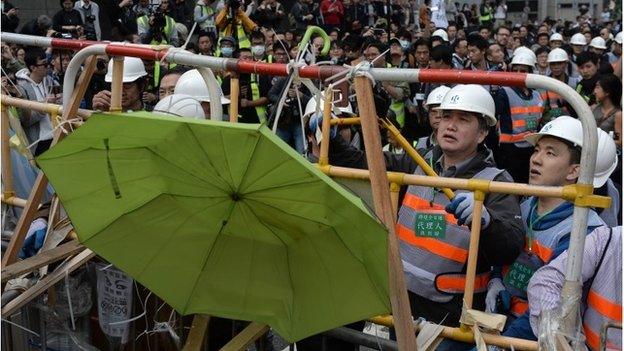Frustration and fear in divided Hong Kong
- Published
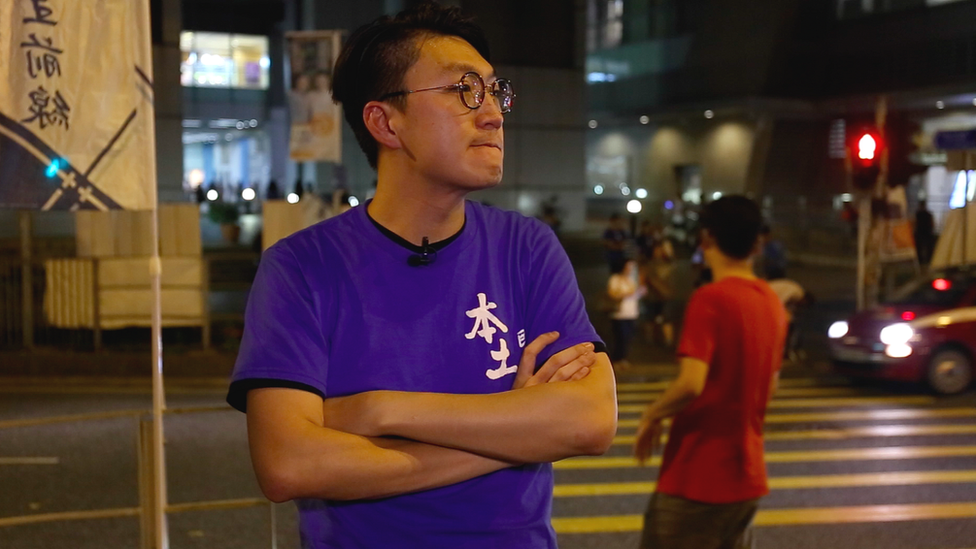
Two years after taking part in the famous Umbrella Movement, 25-year-old Edward Leung is back on the streets of Hong Kong with a blunt assessment of political progress.
"I was a peaceful protester. But what have we achieved? Nothing."
This week the former British colony holds its first citywide election since the democracy protests, with opinion polls suggesting that young voters are growing more radical.
Edward Leung says that's what frustration does to you.
"After the failure of the protests I started to question myself - am I willing to pay a higher price? Like the history of black power in US in 1960s. There was a man called Malcolm X, there was a man called Martin Luther King. People advocate their own means no matter if it's peaceful or forceful one. I advocate all means.
"Of course if peaceful means could change society then I would love to do so because it's less costly. But if it's essential to use more radical means to put pressure on the government I'm open to use this means, more forceful means."
Edward Leung is already awaiting trial on charges of rioting after a street protest earlier this year.
He's one of a group of young democracy activists who were hoping to win election to the Legislative Council and make mainstream their battle to free Hong Kong from Beijing's authoritarian politics.
But along with five others, he has been barred from standing as a candidate because the authorities fear that if he won a seat in the Legislative Council, he might use it as a mandate to campaign for independence.
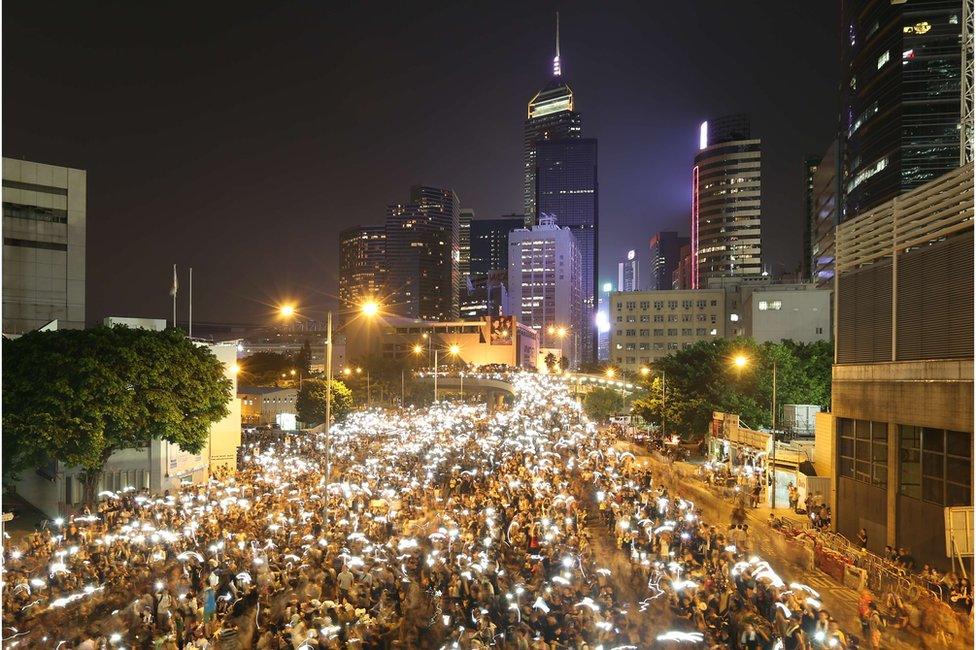
The Occupy Central protests saw tens of thousands of demonstrators flood the city centre in September 2014
Chinese state media describe independence advocacy as absurd and poisonous. For Beijing, allowing self-determination in any part of China is unthinkable.
In Tibet or Xinjiang even demanding meaningful autonomy is punished with long jail terms. Peaceful activists are often charged with separatism and lumped in a criminal category with those who use violence.
Political commentator Bao Pu grew up in elite Communist Party circles in Beijing and says in the context of China's increasingly strident nationalism, independence is simply not realistic for Hong Kong. Beijing, he says, would respond with overwhelming force.
"To gain independence, the only way is for Hong Kong to have an independent army and fight with the People's Liberation Army and win. I think that scenario is non-existent," he says.
But against a backdrop of political paralysis, economic slowdown and the growing influence of mainland China in every walk of life, some young Hong Kongers are beginning to think the unthinkable. In a recent poll by the Chinese University of Hong Kong nearly 40% of those surveyed under the age of 25 supported the idea of independence.
Alvin Yeung of the Civic Party is 35 and not in the independence camp. But campaigning for re-election this week, he defended the free-speech rights of those who do advocate independence, and said Beijing only has itself to blame for the radicalisation of young people in Hong Kong.
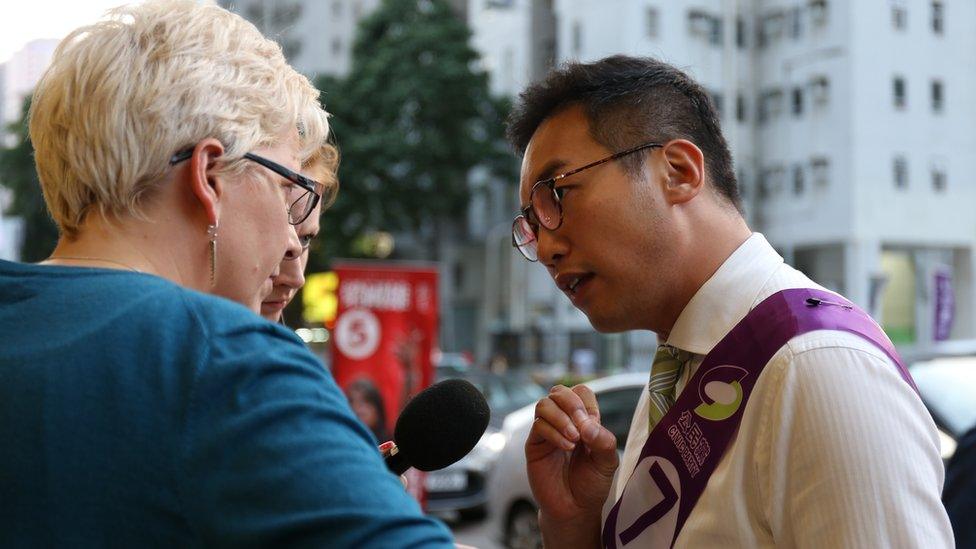
Alvin Yeung campaigns for free speech but does not back independence from China
"They have been interfering with HK affairs dramatically. We used to believe that even if we can't choose our own chief executive we can choose our own legislature. But now this year this government is demonstrating the opposite. They handpicked a few candidates. This is very worrying."
Keeping independence advocates out of the Legislative Council is one red line for Beijing. Keeping them out of secondary schools is another.
With teenage activists planning to discuss independence in school, some pro-Beijing groups are now pressing for classroom talks by mainland politicians and criminal sanctions against teachers who advocate independence.
As the legislative election and the start of the new school year coincide in the days ahead, the battle for young hearts and minds is in full swing.
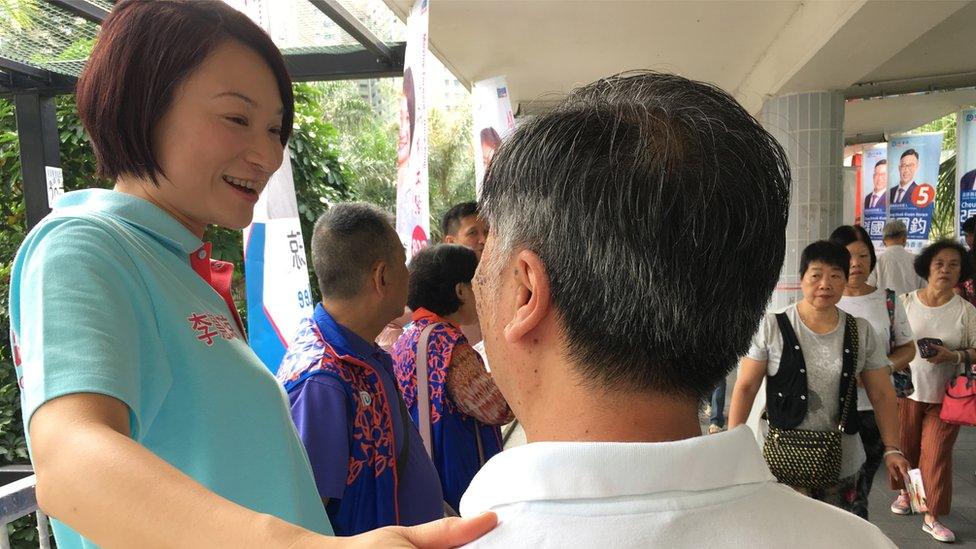
Starry Lee heads Hong Kong's pro-Beijing party
"Moving forward together" is the campaign slogan for the pro-Beijing DAB party. Party chairwoman Starry Lee smiles and bows to voters from a busy pedestrian overpass but she has a stern warning for young people who talk the language of independence.
"I cannot see how becoming radical or going extreme can solve problems. Do you think people in Hong Kong will pay the price for and fight for Hong Kong independence? I don't think so.
"If you push for Hong Kong independence it means a very high price for Hong Kong society and I think that everyone knows that this is not joking."
A passing voter shuns Starry Lee's party politics but agrees that Beijing is not joking and says hardly a day goes by when she doesn't think about leaving Hong Kong.
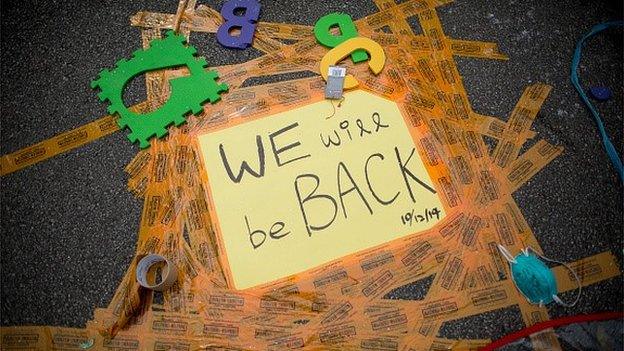
Two years ago protesters vowed to continue with their campaign, but many young voters are frustrated
"I really think it's going to end bad if the majority think that we have to go for independence because I do believe central government will do anything to keep the country as one. I love Hong Kong, it's my home. But I can see the potential for it turning bad."
Commentator Bao Pu says whatever public sentiment, the direction of travel is not towards independence but in the opposite direction - towards greater dependence on the mainland.
"In a practical sense, Beijing has full control over what kind of democracy Hong Kong can enjoy," he says.
"People on the streets have little say in this and China's influence will naturally grow because Hong Kong's economic, political and social situation are all connected to mainland China. This is a trend that nobody can reverse."
As competing candidates vie for public attention in the closing days of the Legco election, it's hard to escape the conclusion that the vote will have little impact on fundamentals.
And with some of the leaders of the Umbrella Movement excluded, the divisions in Hong Kong's politics seem ever more dangerous. As one person sums it up: "'The choice is stark. Adapt, leave or die."
- Published2 August 2015
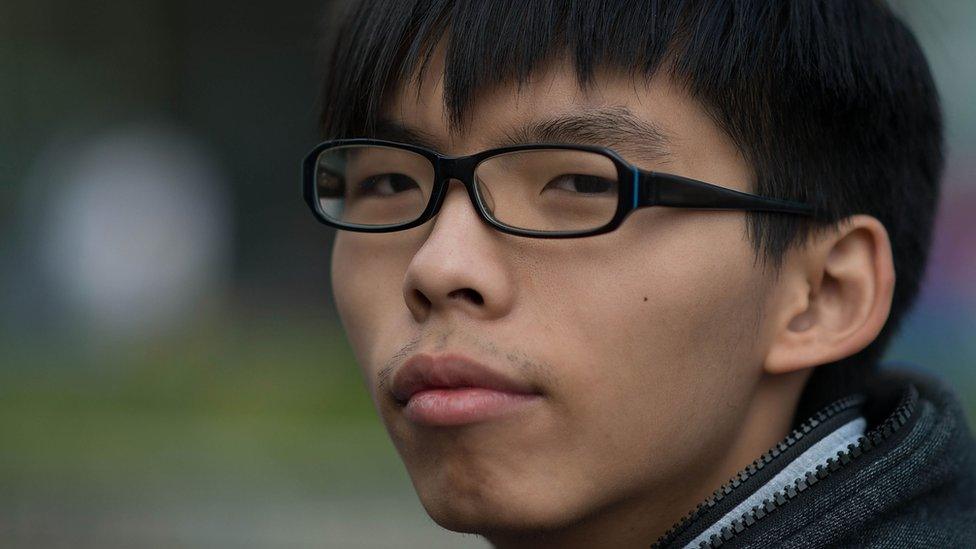
- Published11 February 2016
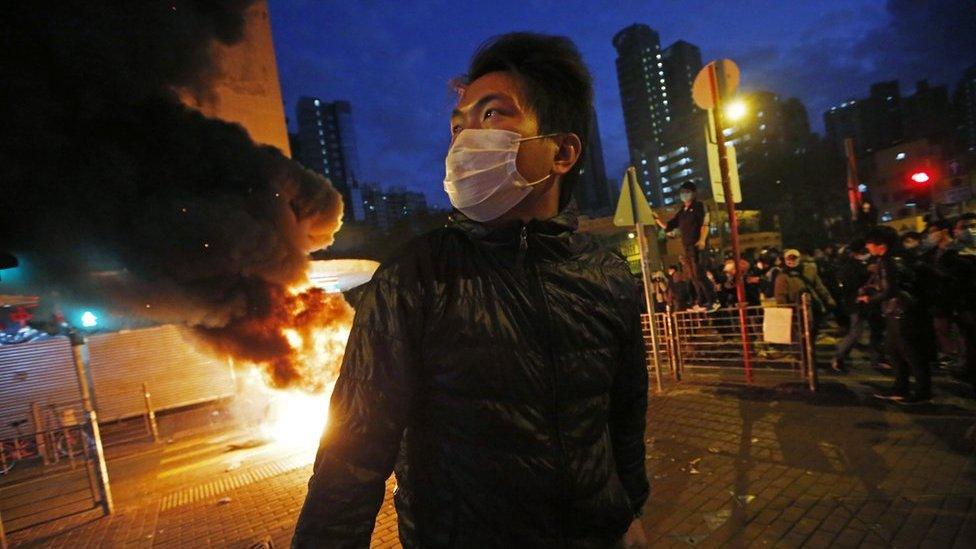
- Published23 November 2015
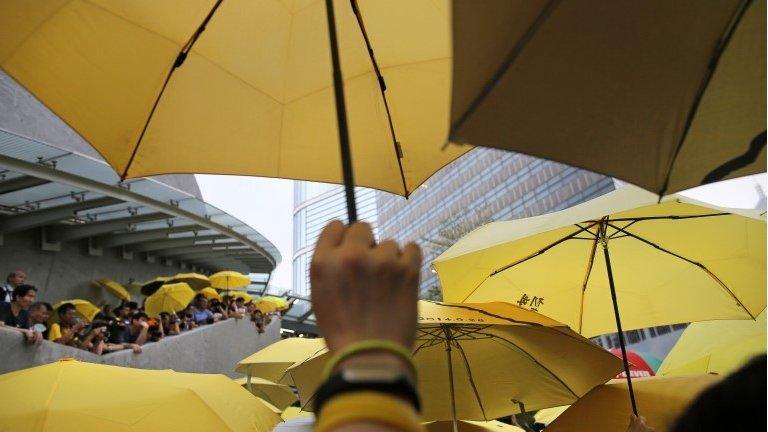
- Published18 June 2015
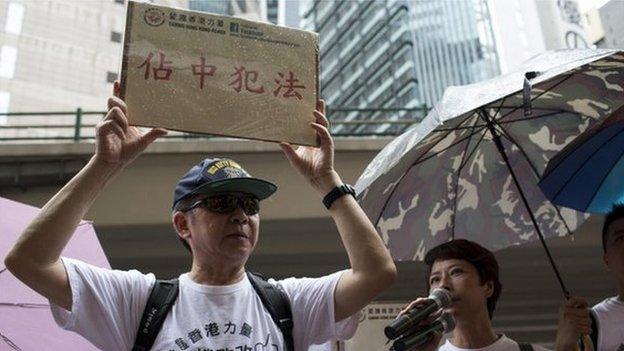
- Published11 December 2014
